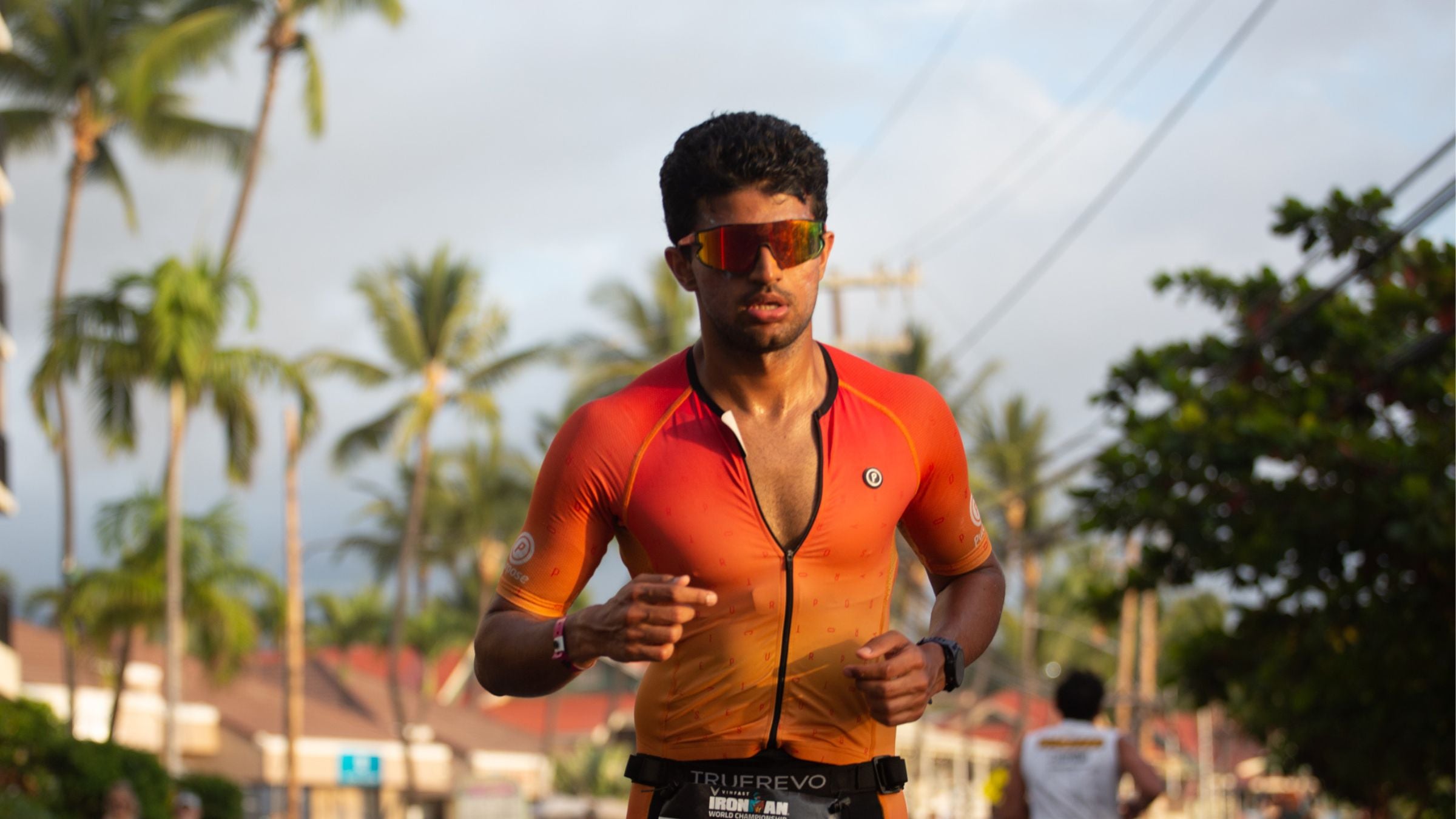I Didn't Hit the PR I Trained For. Now What?

You trained for a PR, but race day had other plans. Here's how to bounce back even stronger. (Photo: Hannah DeWitt/Triathlete)
There’s nothing more frustrating than training for months with a personal record, or PR, as your goal, and falling short. But just because you missed your time goal by a few seconds (or minutes…or even an hour) doesn’t mean your race was completely unsuccessful. Coming short of the personal record you trained for is common, whether due to overtraining, undertraining, injury, or external factors like race terrain or weather conditions. The real testament to your strength lies in how you respond mentally.
Switch your mindset
After missing your PR, you may feel disappointed, confused or angry. This mindset becomes toxic when it affects your training schedule in the long run and causes lack of motivation. The opposite can also be concerning: some athletes may feel extra motivated to train harder and hurt themselves as a result. (And in case you need a reminder, hurting more does not make you a badass)
Benjamin Kessel, CSCS, a triathlete coach at Priority Fitness Training suggests taking at least 24 hours to embrace disappointment so you don’t neglect yourself emotionally.
“A very easy training session—think a light swim or a scenic bike ride—can enhance blood flow, produce endorphins, and maintain routine either the day after or two days after a race,” he says. “A full day off with family and friends is pretty magical, too. Embrace the energy of people you want to be around to boost your spirits.” Take time to rest, recover and reflect before setting a future game plan in motion.
It’s also important to acknowledge that perfection should never be the goal. “You’re building yourself into the best you can be, and it’s natural to uncover weakness along the way,” says triathlon coach Dave Mendelsohn. “At the end of the day, it’s just one race.”
RELATED: Keep Positive Self-Talk in Your Mental Toolbox During Training and Races
Set moderate expectations
Temper your expectations pre-race to buffer a potentially unfavorable outcome. “Racing with expectations is dangerous,” Kessel says. “Nobody should ‘expect’ to hit their PR. We all lace our shoes up and hope for the best. That’s all we can count on. PRs are earned, not deserved. If someone misses their PR, it’s just a step towards reaching it one day with the right attitude.”
Sometimes, what happens is out of your control. Age-group triathlete Kyle Axman trained for Ironman 70.3 in Chattanooga, TN for six months, only to suffer a severe injury just days before the race. He was doing his final bike ride when a pedicab cut him off, causing a minor concussion, torn labrum, AC joint injury, pinched nerves, and several bruised ribs.
“It was supposed to be a PR race for me,” he explains. “I started working with a new coach and was in between jobs for months, so I had more time to devote to a dialed-in training block.” Axman knows firsthand that just because you trained hard and smart doesn’t mean your race will go according to plan – or at all. One way to set moderate expectations is to focus on the process of your training, not the outcome. Day-to-day progress in training can be wins in and of themselves, and when you finally do get that PR performance, it will be all the more satisfying.
Analyze what went wrong
There’s always an opportunity to learn from race experiences to make you a better athlete in the long term. Kessel suggests breaking down what happened to pinpoint the problem from your previous race. “If you took part in a short race course that went sour due to a poor night’s sleep, there’s room to recover quickly and toe the line in a few weeks,” he explains. “If it’s an Ironman and you destroyed yourself on race day, allow time for proper recovery and apply whatever you learned towards future training and racing.”
Even professional triathletes come up short of a PR. Ben Hoffman was attempting to win his third straight Ironman in South Africa when he realized he may have overtrained. Following an intense bike race a few weeks prior, a couple of heavy crashes and a lingering stomach virus, he limped his way to the start line and walked to the finish.
“That autumn and winter were the toughest of my career, not knowing if I could recover and come back to a high level again,” he says. “I built a plan that broke down my return into small daily goals and just concentrated on the process, not the end result. The reset meant that I was able to see new things that needed attention, both on the mental and physical side, and I came back stronger than ever, posting arguably my best season ever.”
RELATED: Your Tri Season Post-Mortem Worksheet
Ask yourself: What’s next?
Unless it’s your first time at the distance, there’s no way to guarantee a personal best — that’s the beauty of the sport. You can’t predict what’s going to happen on race day or who you’re up against.
“My injury taught me to prioritize rehab and recovery. It’s not just about the PR,” Axman says. “I keep the PMA [Positive Mental Attitude] flowing because mental strength is just as important as physical when it comes to recovery and tri training.”
“Approach each race and training day with a growth mindset,” Kessel adds. “Apply the lessons learned towards future training and racing so you can be prepared to make better in-the-moment decisions and race to your full potential.”